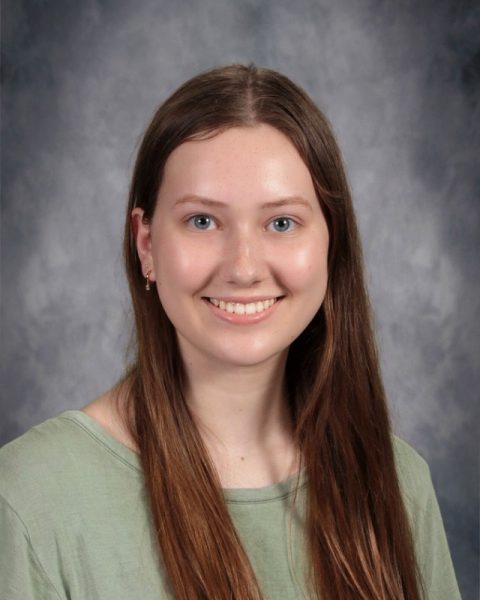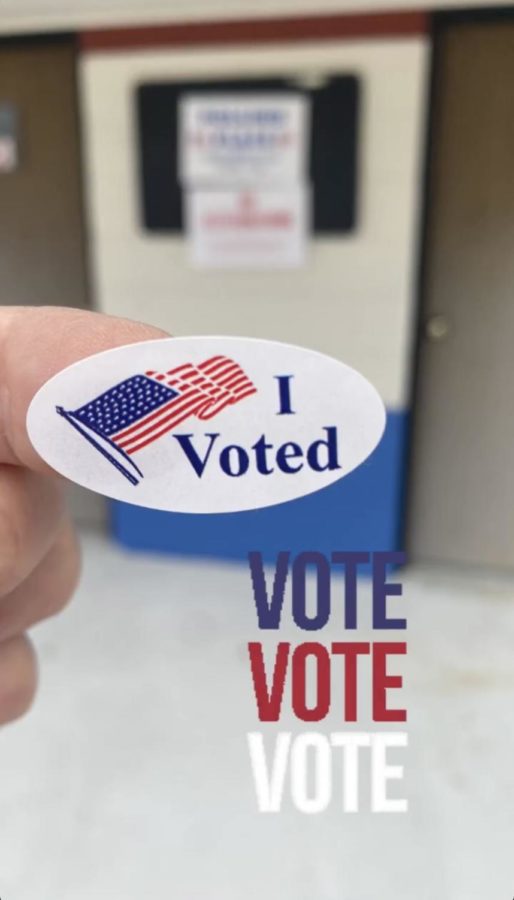“I Voted”
How does the school prepare students for the world of politics?
51 years ago, the states ratified the 26th Amendment, which granted suffrage to American citizens beginning at 18 years of age.
This means that today, Tuesday, November 8, 2022, a portion of high school seniors will be able to vote in the midterm elections. The school makes it a point to educate students about politics in order to prepare them for this essential role in the U.S. government system.
In order to graduate, students must attain one government credit. Classes such as Government; Advanced Social Sciences; U.S. Government and Politics, AP; and the Three Sectors Institute fulfill this requirement.
Social Studies Teacher Mr. Craig Blanchet teaches the latter two of these classes and spends a lot of class time discussing elections. The federal constitution is studied in both AP U.S. Government and Politics and the Three Sectors Institute, but the Three Sectors class goes a step further and studies the state constitution as well. The AP Government and Politics class takes a look at political ideologies and parties, and Mr. Blanchet encourages students to discover their own political identities and explore issues that are important to them.
Mr. Blanchet says, “I think that if you empower kids to identify what issues are important to them as individuals and then help connect them with political platforms, or maybe even parties, that might incorporate their ideas, the topic of politics isn’t as taboo.”
Mr. Blanchet also makes sure that students in his classes who have already turned 18 get registered to vote on the Indiana government site.
Students can express their political identity by participating in clubs as well. Some of these organizations include the Young Republicans Club, headed by Social Studies Teacher and Head Bowling Coach Mr. Mark Noe, and the Young Democrats club, moderated by Social Studies Teacher Sister Mary Ann Stewart.
Sr. Stewart said, “I think it’s important for students to get involved in a political party because there are issues in this election especially that are critical to the survival of our republic.”
While the Young Republicans Club and Young Democrats Club haven’t been very active post-pandemic, teachers hope to get them up and running again soon.
Pre-pandemic, these clubs would discuss current political issues and have the opportunity to listen to guest speakers. For example, according to Sr. Stewart, the Young Democrats Club hosted “speakers, usually candidates running for local offices, and some students worked at the polls on Election Day (as well).”
Students can also join the Political Philosophy Club, moderated by Mr. Blanchet, to learn more about political philosophies and analyze writings involving ideas that are still relevant to today’s political atmosphere.
Additionally, the school’s speech and debate team can push students to become more politically involved. Events such as United States and International Extemporaneous Speaking, Congress Debate, and World School Debate require students to research political topics and form their own opinions about them.
Although politics is a taboo subject in many classrooms, not all teachers believe that it’s a topic to be avoided. Mr. Blanchet said, “If you’re thinking about politics in a positive way, you’re just trying to figure out how it is that the government can best serve people. Even in our Holy Cross environment here at Cathedral, if you think about how you can better help people, (participating in politics) really fits with a lot of missions that aren’t just political.”
He added, “Don’t be afraid to ask questions. Don’t be afraid of having some ignorance about politics or who your representatives are. Just dig in. There’s lots of resources online and a lot of folks in the building in person who can help you to make participating in politics less awkward.”

Olivia Uskert is a senior reporter for the Irish Connection Media Network. She is interested in telling stories about Cathedral’s performing arts programs,...







